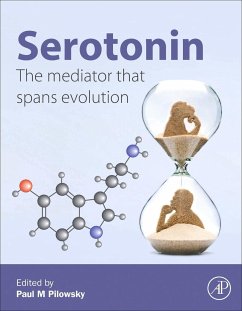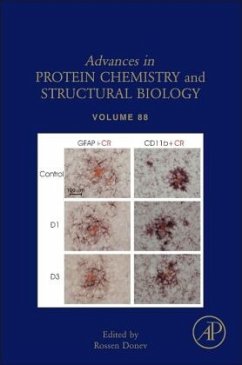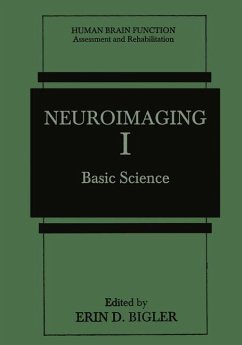
Tryptophan, Serotonin, and Melatonin
Basic Aspects and Applications
Herausgegeben von Hüther, Gerald; Kochen, Walter; Simat, Thomas J.; Steinhart, Hans
Versandkostenfrei!
Versandfertig in 1-2 Wochen
229,99 €
inkl. MwSt.

PAYBACK Punkte
115 °P sammeln!
This book contains peer-reviewed contributions presented at the 9th Meeting of the International Study Group of Tryptophan Research (ISTRY) held in Hamburg, October 1998. It provides a unique survey of the progress in tryptophan research and covers the research areas of psychiatry, neurology, pharmacology, toxicology, immunology, biochemistry, chemistry, food science and analytical chemistry. The proceedings include contributions on basic research topics and clinical, nutritional or industrial applications. The book summarizes advances in the understanding of basic aspects of tryptophan metabo...
This book contains peer-reviewed contributions presented at the 9th Meeting of the International Study Group of Tryptophan Research (ISTRY) held in Hamburg, October 1998. It provides a unique survey of the progress in tryptophan research and covers the research areas of psychiatry, neurology, pharmacology, toxicology, immunology, biochemistry, chemistry, food science and analytical chemistry.
The proceedings include contributions on basic research topics and clinical, nutritional or industrial applications. The book summarizes advances in the understanding of basic aspects of tryptophan metabolism and the role of many different tryptophan derivatives under physiological and pathological conditions as modulators of, e.g., nervous, immune, endocrine and metabolic regulation. Possible applications such as the therapeutic perspectives of tryptophan, 5-hydroxytryptophan and melatonin in medicine, their use as food supplements or animal feed, and the application of novel analytical methods in tryptophan research are described.
The proceedings include contributions on basic research topics and clinical, nutritional or industrial applications. The book summarizes advances in the understanding of basic aspects of tryptophan metabolism and the role of many different tryptophan derivatives under physiological and pathological conditions as modulators of, e.g., nervous, immune, endocrine and metabolic regulation. Possible applications such as the therapeutic perspectives of tryptophan, 5-hydroxytryptophan and melatonin in medicine, their use as food supplements or animal feed, and the application of novel analytical methods in tryptophan research are described.














